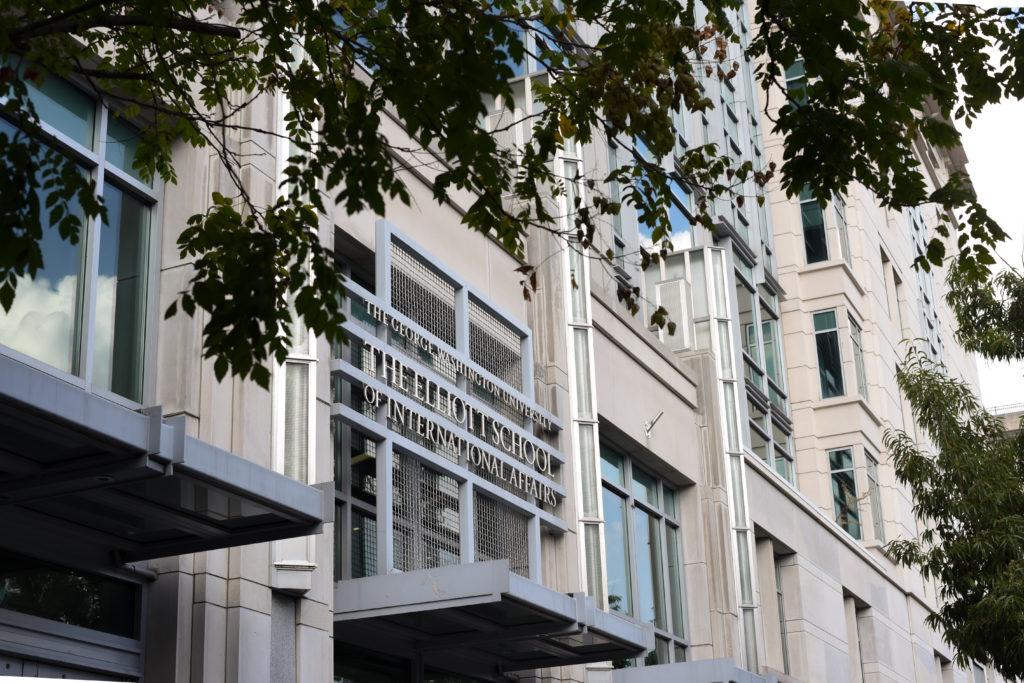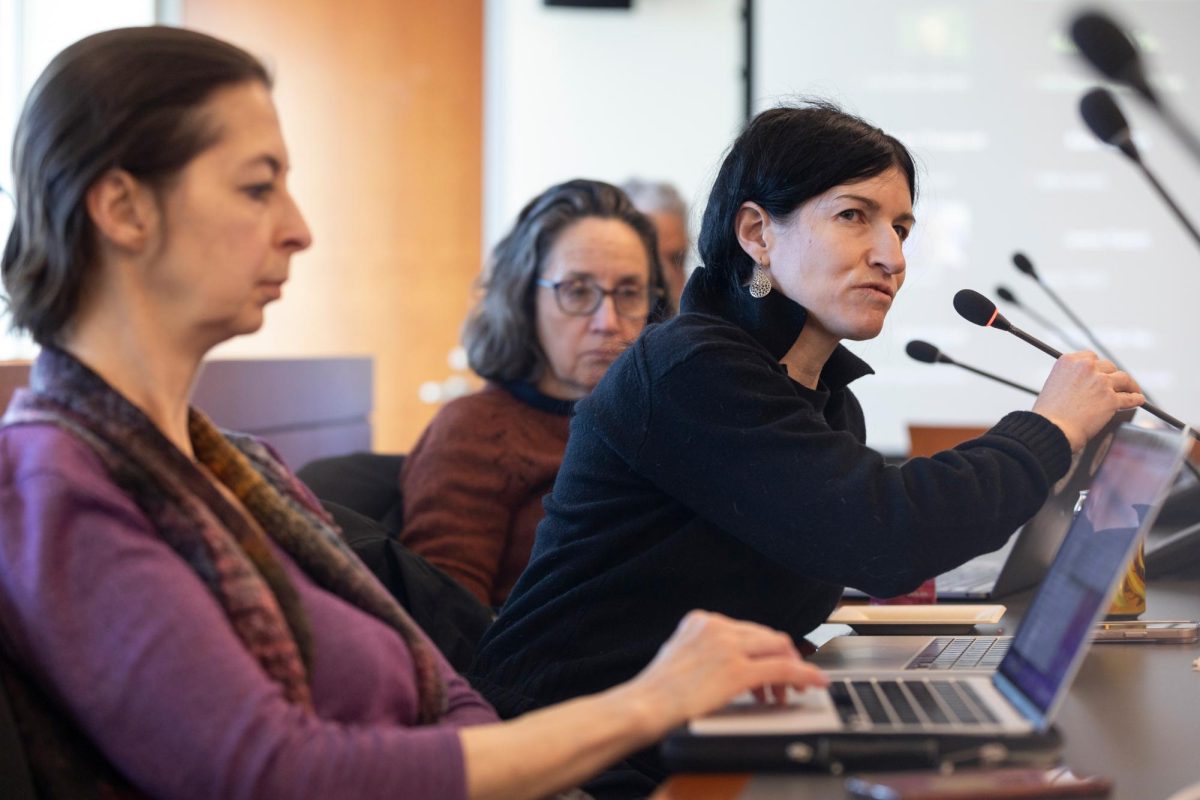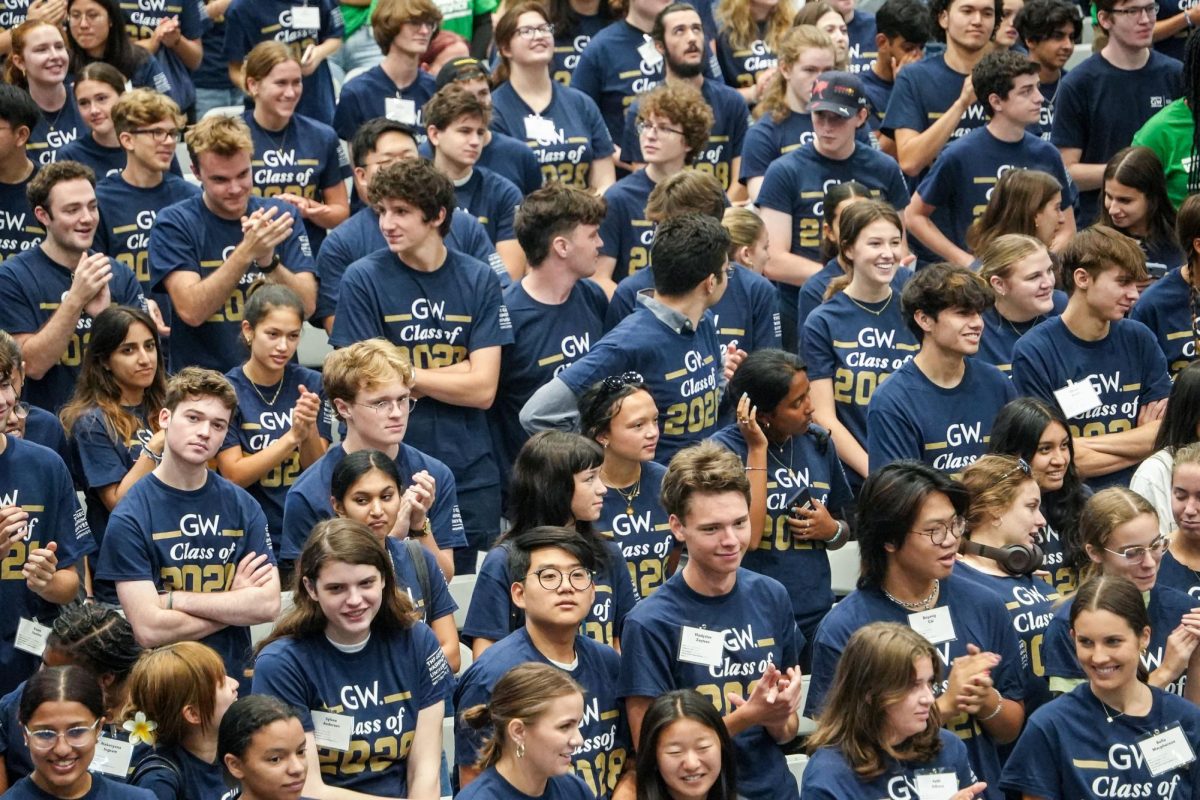The Elliott School of International Affairs released its third consecutive diversity action plan last month in hopes of diversifying the school’s community and curricula.
Officials said this year’s action plan is centered on four goals – increasing the number of diverse students, staff and faculty, improving the ‘overall climate of inclusion,’ expanding the discussion of social justice in the Elliott School’s curricula and organizing an infrastructure that continually supports these plans. Officials launched the school’s first annual diversity action plan in 2019 as a part of ongoing efforts to increase diversity, inclusion and equity at the University and said they hope to transition to a multi-year plan next school year.
Jonathan Walker, the Elliott School’s senior assistant dean for student services, diversity, equity and inclusion, said the school began developing the plan in May, holding a number of meetings and workshops with all offices. He said Elliott’s leadership team and its Council on Diversity and Inclusion – a body of students, faculty and staff who advise the leadership team on the implantation of diversity, equity and inclusion initiatives – received a draft for the plan at the beginning of the semester before announcing the plan in October.
Walker said the goals outlined in this year’s plan were grounded in the Elliott School’s “inclusive excellence framework,” the structure that the diversity, equity and inclusion office created to carry out their goals to diversify the school. He said the framework produces concrete goals through a multi-step process – identifying strengths and opportunities, assessing an individual unit of the school and producing specific strategies and metrics.
“It also emphasizes our community’s collective responsibility toward achieving a more diverse, equitable and inclusive environment at Elliott,” Walker said in an email. “Each goal aligns with one of the four [inclusive excellence] dimensions: access and equity; climate and intergroup relations; learning and development; and infrastructure and accountability.”
He said Elliott’s Office of Diversity, Equity and Inclusion created a toolkit to identify strategies and tactics to achieve its goals after drawing on resources from the state of Virginia and the University of Michigan.
Walker said school officials plan to work closely with GW’s Office of Diversity, Equity and Community Engagement and use the results of GW’s campus-wide diversity review, spearheaded by interim Provost Chris Bracey, to create the Elliott School’s multi-year plan. He added that staff transitions, including one causing a vacancy in the role of program manager in the school’s diversity, equity and inclusion office, have created challenges in the development of this year’s plan.
“The recent departure of our program manager in the [diversity, equity and inclusion office] has shifted our priority to backfilling this position by the end of the semester in hopes of continuing to operationalize our strategies in collaboration with our community,” Walker said. “Additionally, transitions in other offices have impacted the implementation of some strategies.”
While the previous two action plans focused on bolstering the diversity and inclusion council’s staff to ensure the long-term success of their plans, this year’s goals and strategies are more based on consistent upkeep and improvement of existing structures, like the school’s newsletter, the council’s resources on diversity and funding for diversity fellowships, according to Elliott’s website.
Officials said earlier this year that they achieved 65 percent of the goals the council created for last academic year, setting a higher bar for the execution of this year’s plans.
Danielle Whyte, the first-year undergraduate representative of the Elliott School’s diversity and inclusion council, said the council wants to maintain and move forward with the same goals that it focused on in the first annual action plan.
“There’s never going to be too many diverse teachers,” Whyte said. “There’s never going to be too much of a curriculum that’s too equitable and inclusive of all backgrounds. So we continue to really make strides towards the goals that we’ve had from the beginning.”
Whyte said preparation and proper planning is essential to execute these goals and ensure that the Elliott School is inclusive and open. She said this year’s action plan calls for town-hall style coalitions and increasing the number of student representatives as a part of the efforts to engage with members of the Elliott School community and learn from their concerns.
“These spaces can’t pop out of nowhere,” Whyte said. “They really require prerequisites such as education, fostering the right climate and really making sure that Elliott is ready for diversity, equity and inclusion to be deeply ingrained into every single asset.”
She said achieving the goals detailed within the action plans allows marginalized communities to access the same opportunities as any other student and creates a community for study that accepts everyone.
“You can’t be a global leader if you don’t believe that there should be a seat at the table for every identity,” Whyte said. “At the table, everyone should have the food they need. And working within that analogy, Elliott leaders must understand that international affairs is nothing if it’s not rooted in diversity, equity and inclusion.”








